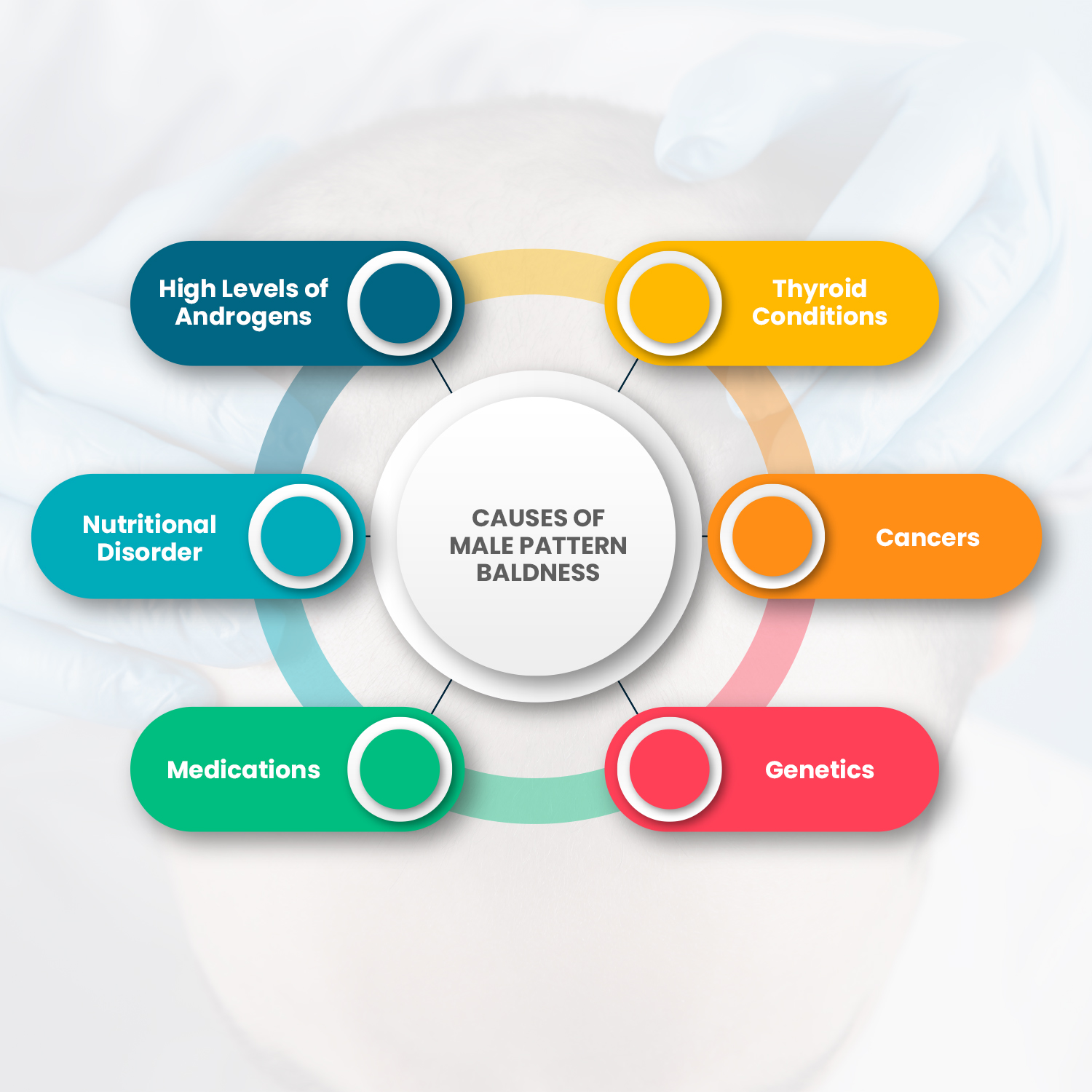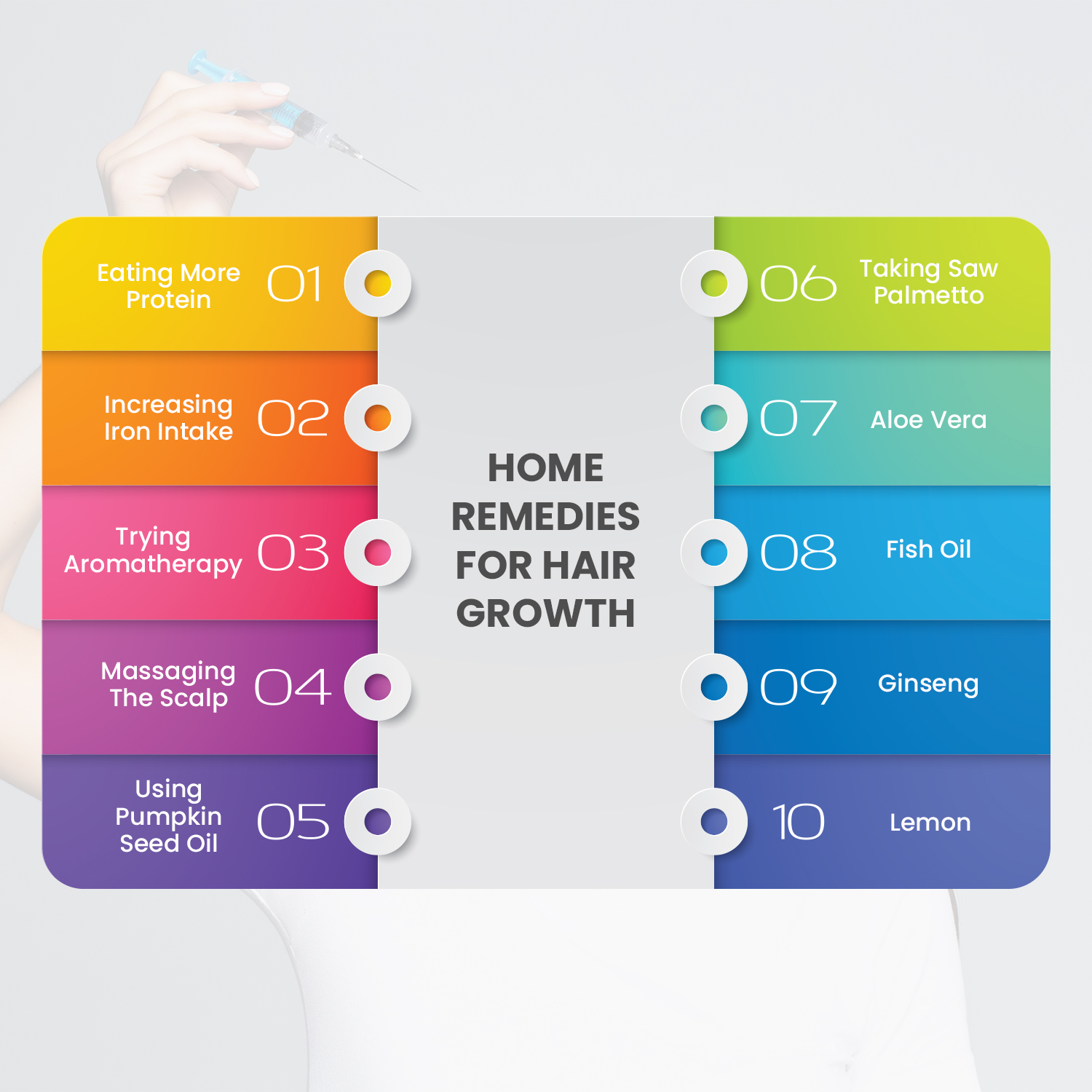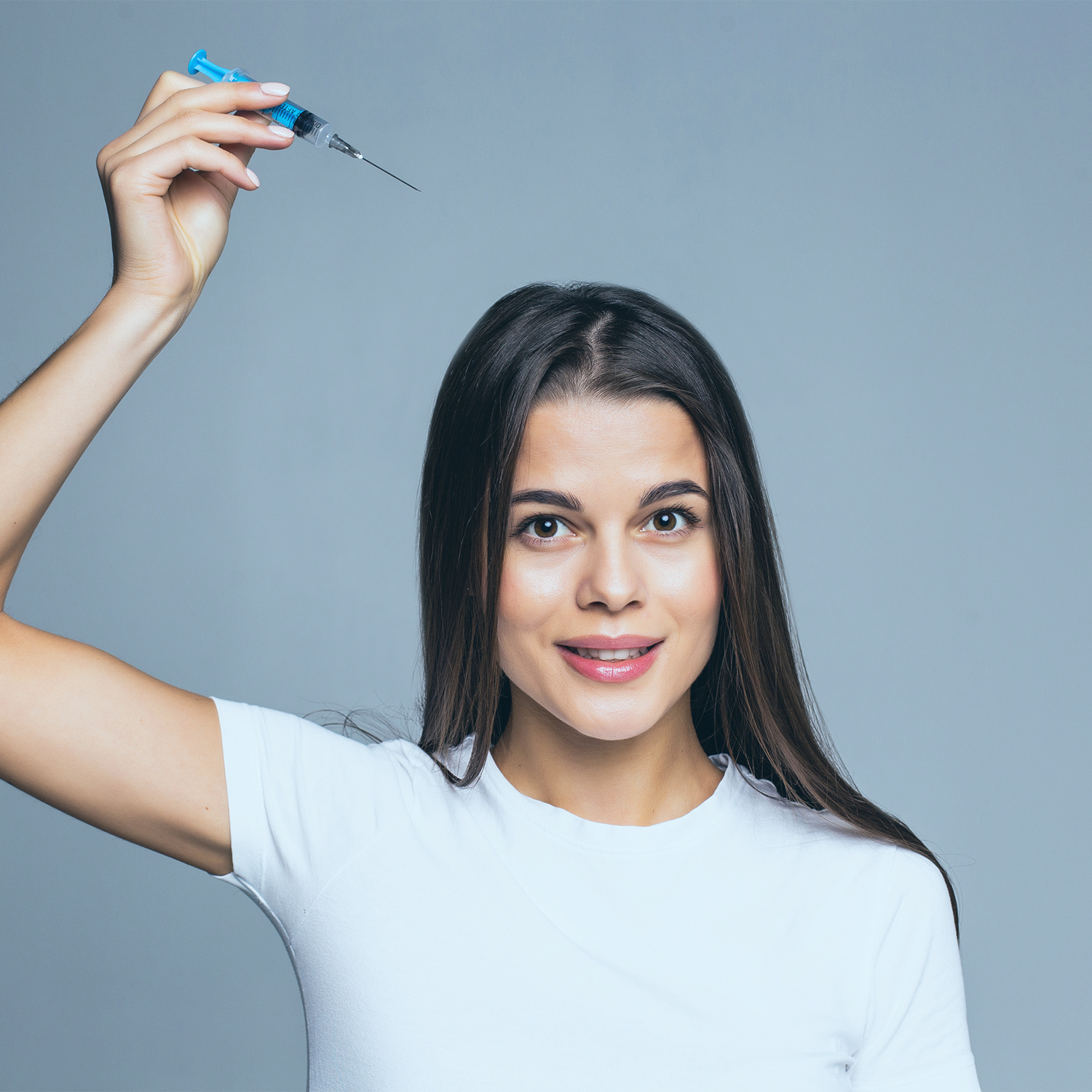Alopecia is on the rise; even though it might not directly affect your health, it can trigger a significant emotional toll. There are several reasons for the loss of hair – nutritional deficiencies, autoimmune diseases, stress, fungal conditions of the scalp, hormone imbalance, and genetics – however, there are steps you can take to grow your hair naturally. In addition, some home remedies for hair growth and thickness are pretty effective salvation from alopecia (hair loss).
You will learn the following from this post:
Table of Contents
- Meaning of hair loss
- Causes of hair loss
- Remedies for hair growth
What is Hair Loss?
Hair loss can be a result of various symptoms. Male or female pattern baldness, also known as androgenic alopecia, primarily affects men over 50 and women who have already reached their menopausal stages.
Male Pattern Baldness

Causes of Male Pattern Baldness
The causes of male pattern baldness include the following:
- high levels of sex hormone, known as androgens
- nutritional disorder
- medications
- thyroid conditions
- cancers
- genetics
Female Pattern Baldness
It is unlikely for women to become utterly bald like men, but the possibility of hair thinning occurring is common. Female pattern baldness is categorized into three parts:
- Type 1: This is when a little amount of thinning begins around the hair part.
- Type 2: This is the widening of the part and increased thinning surrounding it.
- Type 3: Thinning occurs throughout, with a see-through at the top of the scalp.
Female pattern baldness can occur naturally, especially if it relates to hormone changes resulting from menopause or pregnancy, a side effect of treatments or medication, or genetics. It is uncommon for women to experience hair thinning in their 20s but may begin to notice symptoms in their 40s, 50s, or older.
Causes of Hair Loss
Several factors can be responsible for hair loss. The cause of your hair loss can be established if your hair:
- needs urgent care to prevent permanent hair loss
- requires treatment to grow
- can regrow naturally
- thins
- gradually or abruptly falls out
In addition to the details already given, the following are the significant cause of hair loss:
1. Hereditary
Hereditary is the most common factor responsible for hair loss globally, and both men and women can experience alopecia as a result of hereditary. Hereditary hair loss simply means that you have inherited genes that make your hair follicles shrink and eventually refuse to produce hair. Shrinking of the hair follicle can start as early as your teenage years, but it usually starts later in life. The first significant indication of hereditary hair loss in women is often a widening part or overall thinning. The first indication of hair loss in a man is usually a bald spot above his head or a receding hairline.
2. Age
It is normal for people to begin noticing some hair loss with age because there is usually slow hair growth as one increases in age. At some point, the follicles do not grow hair anymore, leading to thinning of the hair on the scalp. At that stage, hair begins to lose its color, and a woman’s hairline begins to recede.
3. Alopecia Areata
Alopecia areata is a skin disease that occurs when the immune system attacks the hair follicles, resulting in hair loss. You can lose your hair in any part of your body, including in your ears, inside your nose, and on your scalp. Some people’s eyelashes and eyebrows also pull out.
4. Cancer Treatment
If you have received radiation treatment or chemotherapy in your neck or head, you may lose a significant part of your hair within a few weeks of the treatment. However, hair often regrows within a few months of ending a radiation or chemotherapy treatment. Dermatologists can prescribe medications that can help regain your lost hair.
5. Childbirth, Illness, or Other Stressors
You may begin to notice more hair on your pillow or brush a few months after having an operation, recovering from an illness, or giving birth. This can also occur after a stressful moment in your life, such as the death of a loved one or a divorce. In this case, regrowth is possible if the stress stops. Your body will automatically readjust, and the hair shedding will stop. When the shedding ceases, you can regain your hair to its normal fullness within 6 to 9 months.
6. Hair Care
If you relax, perm, or color your hair, you could be damaging your hair and the follicles. Over time, this damage can result in hair loss.
7. Hairstyle Pulls on Your Scalp
If your hair is often tightly pulled back, that constant pulling may result in permanent hair loss, known medically as traction alopecia.
8. Hormonal Imbalance
A significant cause of this imbalance is PCOS (polycystic ovary syndrome). It causes cysts on a woman’s ovaries, including other signs and symptoms – hair loss is one of those symptoms. In addition, quitting certain birth control pills can trigger a temporary hormonal imbalance. Women with hormonal imbalances can develop hair loss or thinning hair on their scalp.
9. Scalp Infection
Scalp infection can cause scaly and sometimes inflamed areas on the scalp. You may begin to notice what resembles black dots on your scalp. These are stubs of hair. This infection can cause some people to develop a bald spot.
10. Medication
Hair loss is a side effect of some drugs. If you notice that a particular medication is causing you to lose hair, ask the doctor that prescribed it if hair loss is part of the side effect. Alternatively, you can check the details of the drug and determine if hair loss is a possible side effect. Whatever the situation may be, it’s vital that you do not stop taking the medicine unless your doctor insists otherwise. Abruptly stopping some medications can lead to severe problems.
11. Scalp Psoriasis
Several people who develop plaque psoriasis also have psoriasis on their scalp at some point. This condition can result in hair loss.
12. Pulling Your Hair
Some constantly pull their hair, especially when stressed. Unfortunately, they may not even know that they are pulling their hair, which ultimately leads to hair loss. Trichotillomania is a medical term for this condition (hair-pulling).
13. Scarring Alopecia
This condition occurs when inflammation damages the hair follicles. Once damaged, a hair follicle cannot regrow. Diverse conditions can trigger this. The medical term for this group of disorders is cicatricial alopecia.
14. Sexually Transmitted Infection
If left untreated, an STI can cause hair loss. Syphilis is an example of such a sexually transmitted disease. Syphilis that is not treated on time can cause patchy hair loss on the beard, eyebrows, scalp, and anywhere else. Other STIs can also cause hair loss.
15. Thyroid Disease
If you are battling thyroid problems, you may begin to notice thinning hair. Some people realize that their hair comes out in clumps when they brush it.
16. Too Little Biotin, Iron, Protein, or Zinc
If you are not receiving enough of one or more of these, you may also risk hair loss.
17. Friction
People can have hair loss when tight clothing, socks, or boots frequently rubs against their skin. The medical name for this is frictional alopecia.
18. Poison
The poison that works slowly can give hair loss as a symptom. Poisons that can trigger hair loss include lithium, mercury, thallium, and arsenic. If you eat a significant amount of warfarin – a compound found in rat poisons – you could also suffer hair loss. Taking large amounts of selenium or vitamin A is toxic and can trigger hair loss.
Home Remedies for Hair Growth

10 Home Remedies For Hair Growth & Thickness
When alopecia is a result of a medical condition, it is advisable to speak with your doctor about the right treatments. The following natural remedies for hair growth may be encouraging:
1. Eating More Protein
The body requires protein to develop new hair. Alopecia can occur as a result of protein deficiency. Examples of healthful dietary sources of protein include:
- seeds
- lean meats
- nuts
- fish
- eggs
- beans
The daily protein intake of a person varies based on how physically active the person is and how much muscle mass they have.
2. Increasing Iron Intake
Iron is another essential nutrient the body needs to grow healthy hair. Some dietary iron sources include:
- turkey
- lean beef
- white beans
- spinach
- pumpkin seeds
- oysters
- lentils
- clams
A lot of manufacturers now fortify their foods with iron, which indicates that they have added iron to them. People that do not consume meat require 1.8 times as iron as those who consume meat. This is because the body does not absorb nonanimal sources of iron as effectively.
3. Trying Aromatherapy
Aromatherapy can help in improving hair growth. Examples of herbs that can promote hair growth through aromatherapy include:
- tulsi
- thyme
- rosemary
- lavender
- cedarwood
When applying essential oils on the scalp, ensure that you mix only a few drops of the essential oil into carrier oil (you can use either walnut oil or coconut oil). Unfortunately, more research is required to know if essential oils are an effective natural hair growth treatment.
4. Massaging the Scalp
The act of gently rubbing the scalp helps stimulate the flow of blood to the scalp, which could improve hair growth. A small study from Japan discovered that men who massaged their scalps for about five minutes each day with a device that helped in massaging realized they had thicker hair after six months. In addition, people can use their fingertips to run the scalp in gentle circles. Devices used for massaging the scalp are available online and in drug stores.
5. Using Pumpkin Seed Oil
In a study experimented in 2014, researchers discovered that men who took 400 milligrams of pumpkin seed oil for six months experienced almost a 50 percent increase in average hair count. In contrast, those using a placebo only experienced an increase of 10 percent. All the men had a history of male pattern baldness. They were not currently taking supplements for their condition and were between the ages of 20 and 65.
6. Taking Saw Palmetto
Supplementation with saw palmetto may go a long way in increasing hair in men with androgenic alopecia. In a certain study, the participants took 320 milligrams of saw palmetto each day for the duration of a 2-year-long study. After the study, the participants began to experience hair growth at the top and back of their scalps, which are often the common sites for bald spots among men.
7. Aloe Vera
Aloe vera is an old treatment for hair loss. It soothes the scalp and conditions the hair. Aloe vera can reduce dandruff and clear the surface of hair follicles that may be blocked by excess oil. You can apply aloe vera gel to your scalp or hair a couple of times per week. You can also apply conditioner or shampoo that has aloe vera in it.
8. Fish Oil
Taking omega-3 fatty acids can help improve your hair growth from the inside since omega-3 fatty acids contain proteins and nutrients. Consuming an omega supplement, including antioxidants, can improve the diameter and density of the hair. Fish oil also reduces hair loss. Omega-3 fatty acids help your cells function correctly and can boost immunity, ultimately leading to improved overall health.
Before including any new supplement in your diet, you should consider the manufacturer’s recommended dosage and let your doctor know.
9. Ginseng
Ginseng supplements can help increase hair growth by stimulating the hair follicles. Ginsenosides are the major components of ginseng and are responsible for ginseng’s positive impact on hair. However, you should always take supplements according to the directions stated and always check for any side effects.
10. Lemon
You can use lemon oil or fresh lemon juice since they can both enhance the quality and growth of hair. Lemon oil may assist in maintaining a healthy scalp and encourage the development of hair. Apply lemon oil or fresh lemon juice to your hair and scalp for about a quarter of an hour before shampooing it off. You can also use lemon essential oil, but make sure that you first dilute it in carrier oil before application.
Final Thoughts
If you intend to improve your hair and keep the hair on your head as long as possible, come up with a foolproof plan and be consistent. Never forget that the treatments may take some months before you begin to notice some results. Be creative with the natural remedies for hair growth and mix them up as much as you want.
Post Disclaimer
The information contained in this post "10 Home Remedies For Hair Growth & Thickness" is for educational purposes only. Always consult your primary care doctor before using the remedies that are provided. The information is provided by The Hidden Cures and while we do timely, in-depth research on the information that we provide to you, everything stated may not be up to date or accurate from the time it was written.
